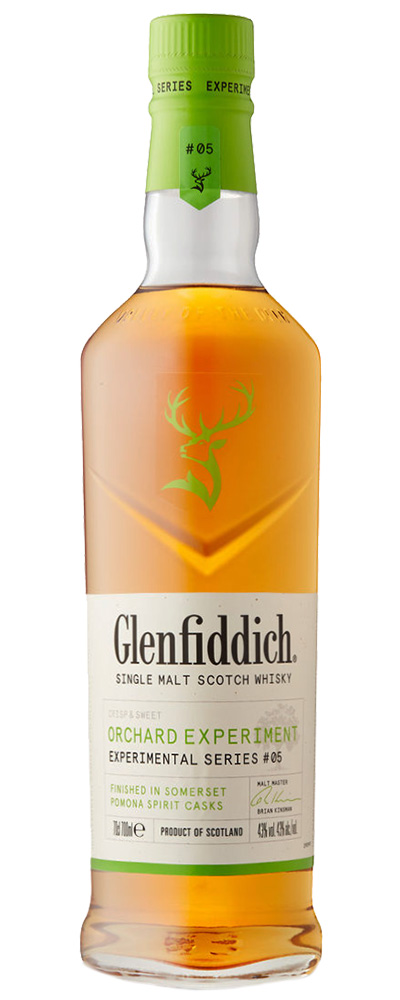The Glenfiddich Orchard Experiment is the fifth release in the Experimental series from the distillery. In the past we already tried Project XX, IPA, Fire & Cane and Winter Storm.
For this release Somerset meets Scotland. This single malt whisky spent its final year in casks that previously held Somerset Pomona Spirit. Pomona is a blend of apple cider brandy and apple juice, usually bottled with added sugar as a liqueur. Malt Master Brian Kinsman got the idea while visiting the Somerset Cider Brandy Co. a while ago.
A prioneering trial from the world’s biggest single malt. I understand this is cider spirit, so not a cider and without the sugary additions, but it’s a strange to still call it Pomona then, and explicitly seek out the limits of the new SWA regulations on cask finishing. After all they banned Glen Moray’s Cider Cask experiment some time ago. Maybe it helps if you have two members in the SWA council.
While Glenfiddich heavily stresses the potential in summery cocktails, we look at it from a whisky enthusiast’s perspective, as always.
Glenfiddich Orchard Experiment (43%, OB 2022, Experimental Series #5, Somerset Pomona cask finish)
Nose: quite a big apple aroma. Cut yellow apples, green apple peelings and indeed also hints of cider. Tart fermentation aromas mixed with honey sweetness. Then (slightly synthetic) marshmallow aromas and oak shavings. Floral spice and whiffs of fresh laundry too.
Mouth: ouch. Totally soapy. There’s creamy banana, a hint of lychee and sweet apple candy, but the floral side really gets out of hand now. In between fabric softeners, jawbreakers and FWP. Some orange zest and candied ginger, with cheap almond extract. Very artificial – the soap ruins everything.
Finish: once you’ve had the soap, there’s no point in going further.
The Pomona finish totally dislocates this Glenfiddich. A waste of spirit perhaps, but at least we can now be sure the experiment doesn’t work. Available from The Whisky Exchange for instance, but I strongly suggest limiting yourself to a 3 cl sample.
